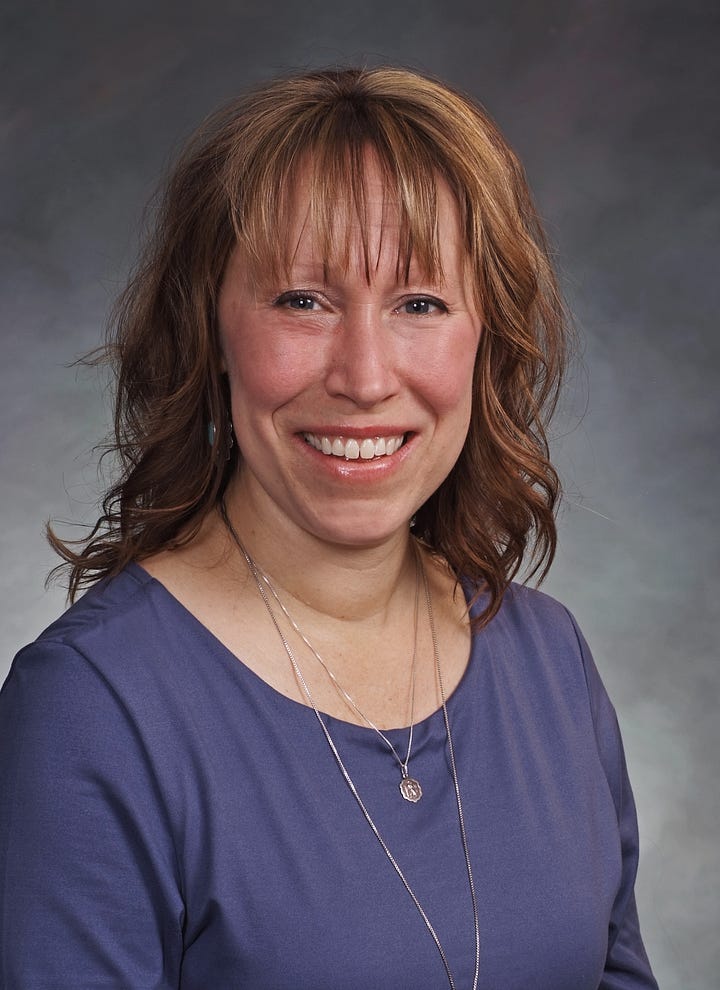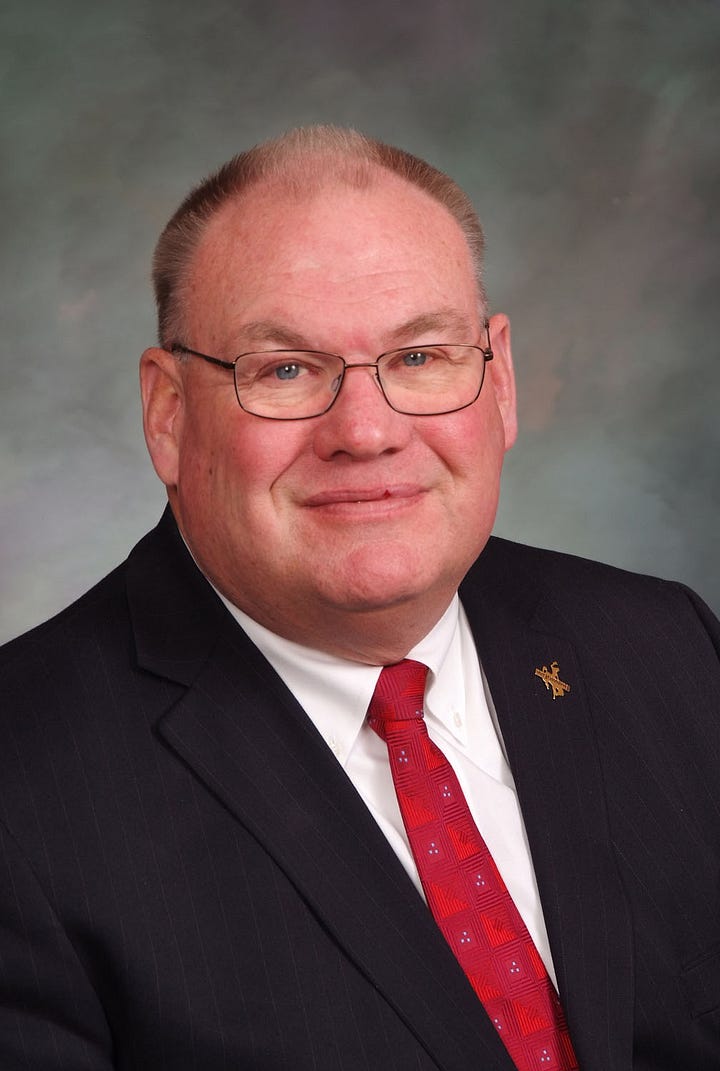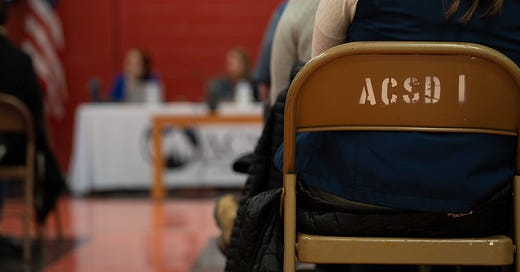School board advances training requirements for concealed carry
In July, Albany County Schools will no longer be gun-free zones. School officials are looking to protect students with a new policy countering the legislature’s “dangerous and unwelcome overreach.”
As a new state law strips public schools of their gun-free zones, the Albany County School Board is looking to “defang” the unwelcome mandate as much as it legally can.
While the district is powerless to stop everyday visitors from bringing concealed weapons onto school grounds, it can put requirements on its own employees and volunteers.
The newly proposed Policy 5050 does just this, requiring that anyone working in the schools must complete more than 60 hours of training and undergo a psychological evaluation before they’ll be authorized to carry on school grounds.
“Albany County School District No. 1 strongly opposes the Legislature’s repeal of gun free zones in K-12 public schools,” the draft policy states. “Guns simply have no place in our schools and will not make them safer for employees and students.”
The school board’s policy and governance committee drafted the proposal with community and attorney input. The full board passed the draft policy on first reading Wednesday and recommended a few alterations for staff to make before the policy’s second reading next month.
As currently drafted, the policy’s preamble justifies its strict requirements by appealing to both student safety and local control.
“The repeal of gun free zones constitutes further legislative erosion of local control and ignores the fact that districts own their buildings with the right to manage them to provide educational programs for their students in a safe environment,” the draft policy states. “The following policy is an effort to mitigate, within the prescriptive constraints imposed by the Legislature, this dangerous and unwelcome overreach.”
The amount of training required in the draft policy is equivalent to that required of officers joining the Laramie Police Department. Trustee Kim Sorenson said that was intentional.
“The plan that made the most sense [was] to mirror those that we already require of people that have chosen law enforcement as a profession,” Sorenson said. “We felt that we could justify that decision. Even though the bar is probably very high, and maybe much higher than some districts are willing to go, we felt that that was the minimum that we could even ask of people.”
There were no public comments about the draft policy Wednesday, but Vice Chair Carrie Murthy read from an email sent by a constituent to the trustees.
“Our ACSD1 policy reflects that you've considered a variety of real world scenarios and drafted a policy that will help ensure the continued safety of our schools,” Murthy read. “You've taken a difficult task and brought common sense to the table. I thank you. If you've ever watched Saturday Night Live, we may need more cowbell, but schools don’t really need more guns, especially guns in the hands of people with little training or judgment.”
District staff will likely tweak the policy — removing, for example, a line in the preamble about school resource officers — but the preamble itself is likely to remain in some form.
“I do think it is important to state that this is a policy that is being put into place because it has to be,” said Trustee Alex Krassin. “And we have done our best to write and provide a policy that creates as much safety as we possibly can.”
In 2024, the trustees objected to another legislative mandate. A law passed that year forced districts across the state to pass policies mandating that school employees, even counselors, out gay and transgender students to their families if and when those students come out at school.
Several trustees, including Krassin, voted against the district’s policy, even though it would have set up the district to be sued. Ultimately, however, the forced outing policy passed with a 5-3 vote.
The board also monitored the 2025 General Session closely. In addition to the repeal of gun-free zones, the legislature also weighed the future of the UW Lab School (ultimately opting not to save it) and passed major legislation increasing the amount of state money that can go to private schools.
The district’s proposed gun policy will need to pass a second and third reading, likely in June and July respectively, before it can be added to the books.
Thinking outside the box
Trustees floated two additional responses to the new law during their meeting Wednesday.
First, the draft policy could be amended such that employees or volunteers making use of their concealed carry rights would have to obtain liability insurance.
“I think it’s something that we potentially could add,” said Chief Human Resources Officer Nathan Cowper.
Second, the district could take advantage of the exceptions outlined in the law. The bill repealed almost all gun-free zones, but it exempted some locations, including the Early Childhood Education Center on the UW campus, other childcare facilities, and university labs where volatile materials are stored.


It also exempts “any public school, public college or university athletic event” where alcohol is sold.
“Did the attorneys not feel that serving alcohol in every school setting all the time is a suitable [solution]?” Vice Chair Murthy asked Cowper.
“I have been looking into that question,” the HR director replied. “To a certain extent, there is a federal statute on this particular topic, which I’m still trying to investigate exactly. I don’t want to lose our federal funding because we're trying to circumvent something like that.”
Cowper said there would be the additional difficulty of securing a liquor license.
“At this time, I don’t really see that as being a viable option,” he said. “But we’ll continue to investigate.”
What’s in the policy?
Mandatory training, psychological evaluations
The draft policy states:
“Prior to carrying a firearm on School District property, the employee or volunteer shall complete an initial training course comprised of not less than forty-seven (47) hours of live fire handgun training, and sixteen (16) hours of scenario-based training using nonlethal training, firearms, and ammunition.”
The live fire handgun training must include instruction on various specific elements of firearm maintenance, use, storage and safety; various tactical skills like “proper use of cover and concealment” and “techniques for engaging multiple adversaries;” and completing the Wyoming Law Enforcement Academy Close Range Pistol Proficiency Course with a score of at least 80%, the threshold required of law enforcement trainees.
The scenario-based training must expose its participants to scenarios that “replicate as nearly as possible the mental, emotional, and physical stress of an actual encounter,” and provide instruction on de-escalation techniques, active shooter situations and emergency medical care.
The draft policy requires that interested employees and volunteers take an additional 18 hours of training annually, refreshing this education, in order to keep carrying on school grounds.
Their authorization also depends on undergoing “a psychological evaluation conducted by a licensed mental health professional approved by the district” every three years.
Compliance and consequences
The draft policy makes clear that employees and volunteers who do carry are under no obligation to intervene during a school shooting or other dangerous scenario — and intervene only at their own personal, professional and legal risk.
“An employee or volunteer shall only reveal and fire his or her firearm if he or she reasonably perceives that his or her life, or the life or lives of others, are in imminent risk of death or serious bodily injury,” the policy states.
Whenever a firearm is discharged “for any reason, intentionally or otherwise,” the employee or volunteer is required to report the occurrence to the school and to local law enforcement. They will immediately be placed on leave pending an investigation and undergo drug and alcohol testing.
Failure to comply with any of the requirements or stipulations outlined by the policy will carry stiff consequences.
“Any employee who carries a firearm who fails to comply with any provision of this rule will be subject to disciplinary action, up to and including termination,” the policy states. “Any volunteer who carries a firearm who fails to comply with any provision of this rule will be prohibited from volunteering on School District property.”
What the policy doesn’t cover
The policy, like the law that precipitated it, is focused squarely on concealed carry. Open carry is banned on all property owned by Albany County Schools, just as it is banned on the University of Wyoming campus.
It also only applies to employees and volunteers. Students are not allowed to conceal carry on campus, even if they as private citizens would otherwise be allowed to. Wyoming State Statute 6-8-104(t)(ix) states no person “shall carry a concealed firearm into … [a]ny elementary or secondary school facility if the person is enrolled as a student at any elementary or secondary school.”
Beyond its own staff, volunteers and students, the district cannot limit other visitors, like parents who aren’t actively volunteering, when it comes to concealed carry.
However, school officials floated the idea of making requests or putting up signage asking visitors to inform the school if they are making use of their concealed carry rights.
“We can ask them,” Cowper said. “They just are under no obligation to tell us.”





The premise of this bill was based on the junk science promoted by Dr. John Lott and the only good vote on this Bill was taken by Representative Ken Chestek during the House Judiciary meeting. Senator Crum voted to send this Bill to the floor from his position on the Senate Judiciary and most of the legislators voted for this junk science at least 3 times on the floors of the House and Senate. Crum should get no kudos for exempting the kiddos.
I certainly will not let Senator Crum forget he voted based on junk science.
I think the Liability Insurance will be an interesting place to look at whether this Bill increased those costs going forward. It would be great if the school board would get parsed insurance bill with and without this legislation.
I think the alcohol idea is a dead end and bad idea as UW sells beer in the basement of the Union and that does not seem to have deterred the legislature or the implementation of this stupid idea.